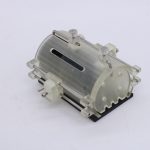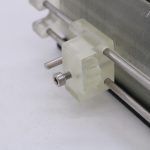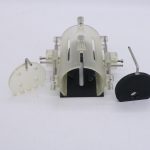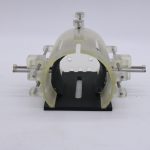ACCDiS does work in conjunction with Fablab U. of Chile
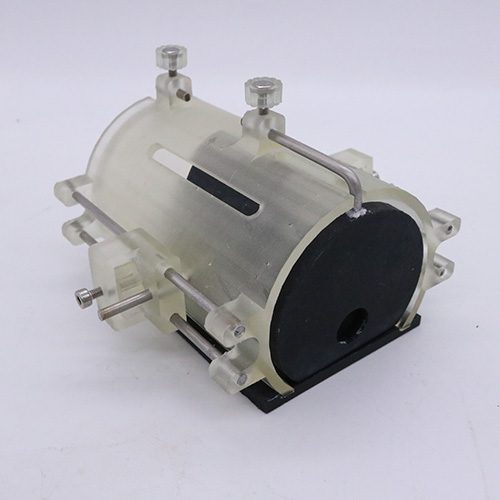
The Animal maintenance unit (UMA) of ACCDiS and the Digital fabrication laboratory of the Faculty of physics and mathematics of the University of Chile (Fablab) they have recently generated a partnership whose purpose was to develop a "device type trap" (Restrainer) adaptable, comfortable and safe grip and control of different models murine during rehearsals, safeguarding the concept of animal welfare in all aspects.
The requirement made was conceived by the need to work with instrumentation that was able to adapt its processes of testing and research. In response, the Fablab team developed an adjustable device printed 3D to facilitate the work of UMA.
In this respect, Danisa Peric, Director of Fablab U. of Chile, stressed that "this collaboration was developed since we want to support and collaborate with projects generated within the University of Chile, both in the area of research and innovation".
On the other hand, Joakin Ugalde, Coordinator of training and academic projects of Fablab, He added that "it occurred to me to do a" Restrainer to be adaptable, since this way it is not necessary for UMA to have a large number of devices to do its job. For this reason, its mechanism has adjustable pads and was made thinking about the geometric restrictions involved in its use".
First of all, the Restrainer made by the Fablab team was prototyped on a low-resolution FDM printer. After its design is approved, moved to a second stage, in which his pieces were elaborated using stereolithography printing.
Consulted for future collaborations between ACCDiS and Fablab, Danisa Peric said that "the idea is that this project is heading to continue collaboration with the Faculty of chemical and pharmaceutical sciences of the U. of Chile. Our interest is to do projects involving r & d and, to do this, We offer not only our technology and materials, but something that is much more important: the Fablab team, It stands out as multidisciplinary, and this diversity allows us to enter into projects that have different nature and interact with different units of the University of Chile, and we hope that it continues to be so in the future".

